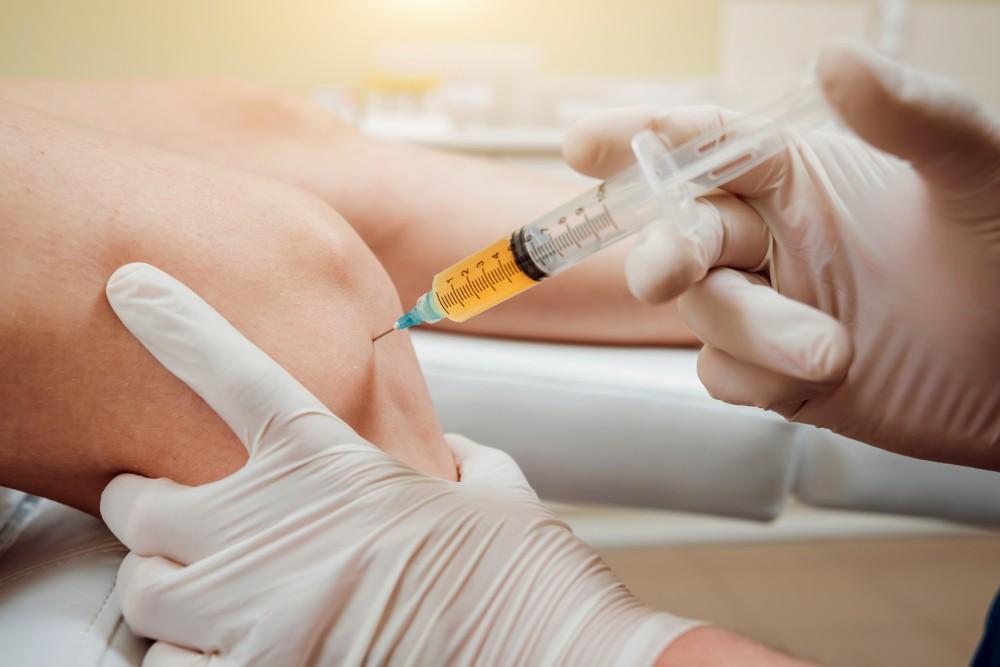
Cortisone is a synthetic steroid identical to the hormone cortisol that is made by your body. It is one of a group of medicines called corticosteroids, and the name people use when they talk about this kind of steroid. When injected, cortisone effectively reduces inflammation in the body that causes pain. The anti-inflammatory effects of cortisone shots can last for several months. It is considered an extremely powerful short-term solution for many painful conditions, but are cortisone injections safe?
Cortisone is injected locally when there is an injury to a joint (like arthritis) or tendon. It is so good at reducing inflammation that there can be unintended side effects in the body. However, it is important to remember that if your doctor recommends a steroid injection, it is because he or she believes that the therapeutic benefit and probable diminishment or elimination of pain outweighs the unlikely occurrence of side effects.
Inflammation is part of your body’s natural immune response to damage. This means there is more blood and fluid available in the area where it’s needed. However, sometimes inflammation is counterproductive to healing, or causes pain that makes it difficult to move or function. Cortisone injections can be an integral part of your treatment plan.
Systemic cortisone injections
When steroids are injected into a muscle, it is considered a systemic injection. It is usually administered to the gluteus or deltoid muscle in the back. This kind of injection can help people with asthma or a serious allergic reaction. Cortisone will reduce inflammation in the breathing passageways and lungs, allowing oxygen to flow again. Severe rashes and hives are also calmed by cortisone.
Local cortisone injections
For pain in a joint or tendon, cortisone is injected directly into the site of the injury. Many injections are performed with the aid of fluoroscopy or ultrasound to administer the cortisone in the exact spot where it is needed. Some common applications include arthritis of the knee or hip, torn rotator cuff in the shoulder, tendonitis, or back pain from sciatica, pinched nerve, spinal stenosis, or facet joint pain from arthritis.
Possible side effects
Doctors know that there are concerns for the health of soft tissue when considering cortisone shots. High doses of cortisone can damage tendons and cartilage. Special formulations are used when treating tendons to minimize any possible damage. The number of injections a patient receives within a year is limited and are not performed more frequently than once every 6 weeks or so.
It is possible for the tissue around the injection site to shrink and for the skin to lose pigment. There may also be a temporary flare up at the injection site that goes away within 48 hours. The effects of cortisone injections are usually not permanent, but in conjunction with other treatments can be extremely helpful in treating pain and orthopedic conditions exacerbated by inflammation.
For patients in Plano, Texas who have joint or tendon pain, the orthopedic experts at Tarpon Orthopedics can help. Our doctors always have your long-term health and wellbeing in mind when recommending a treatment plan. Call (972) 596-1059 for a consultation today in our West Plano, North Plano, or Addison, Texas locations.
Author Yenny Rojas
